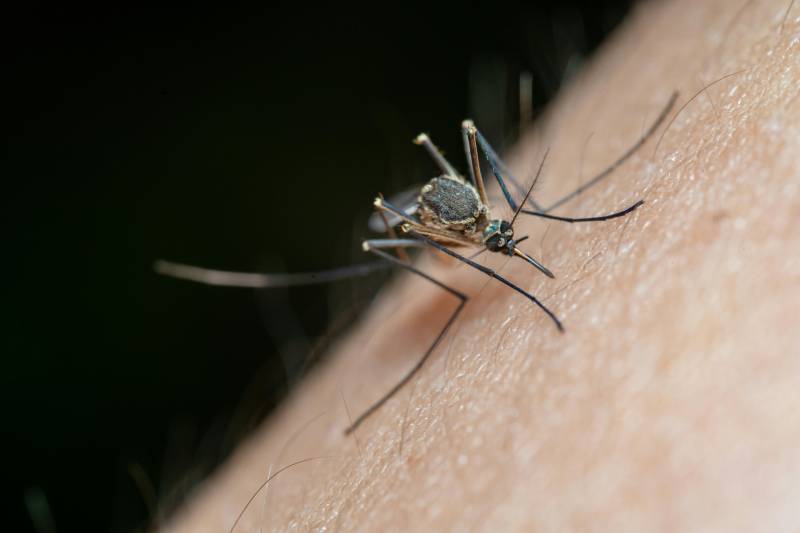

- EDITIONS:
 Spanish News Today
Spanish News Today
 Murcia Today
Murcia Today
 Alicante Today
Alicante Today
article_detail
Date Published: 05/06/2023
Why is Germany boycotting Spanish strawberries?
A German consumer campaign has called on supermarkets to boycott fruit grown in the fragile Huelva wetlands

A delegation from Germany’s Lower House, the Bundestag, has arrived in Spain amid a flurry of media speculation following an online campaign by consumer group Campact urging supermarkets to boycott strawberries grown near the Doñana wetlands in Huelva. The petition, which has been signed by more than 162,000 people, claims that fruit grown on the Andalucia planes are cultivated with “stolen water.”
Doñana has been at the centre of a controversy for months now that involves the Andalusian government pushing through plans to extend irrigation to the strawberry beds at the edge of the National Park, despite the fact that the wetlands are rapidly drying up and against repeated warnings from the European Union.
Now, the nine German representatives have come to Spain to examine the Doñana farming for themselves and meet with their Spanish counterparts to discuss the worrying ecological situation.
Around 30% of the strawberries sold in Germany come from Huelva, and many sceptics have claimed that the move by protestors is more about promoting the more expensive home-grown fruit than concern over the Spanish environment.
The Germans, though, have justified the trip with what they insist are legitimate worries about sustainability.
"Strawberry cultivation is particularly intensive in the Doñana National Park region, one of the most important wetlands in Europe and therefore a biodiversity hotspot. Due to the illegal extraction of water by agriculture for irrigation, especially for the cultivation of strawberries, Donana – accompanied by a persistent drought – is seriously threatened by dehydration. This current problem is of particular interest to the delegation and will be the centre of its debates," the German Parliament explained in a statement.
 A commercial boycott by Germany would seriously affect overall exports from Spain: the strawberry and red fruit sector represents 11.3% of Huelva's GDP, generates 100,000 direct jobs, 160,000 indirect jobs and produces 98% of the red berries that are grown in Spain and 30% in the EU.
A commercial boycott by Germany would seriously affect overall exports from Spain: the strawberry and red fruit sector represents 11.3% of Huelva's GDP, generates 100,000 direct jobs, 160,000 indirect jobs and produces 98% of the red berries that are grown in Spain and 30% in the EU.Far from dismissing the concerns from Germany, the Spanish government, which has been vehemently opposed to expanding irrigation in Doñana from the outset, is using the crisis to highlight the danger that faces the National Park.
But on the other side of the fence, Andalucian farmers fear the media frenzy, which they describe as an "insidious and harmful" campaign, will drive them to ruin and have called on the administration to squash the "hoaxes" of the German protestors.
Before the arrival of the delegation on Monday June 5, sector representative Interfresa has invited them to visit the strawberry and red fruit crops "so that they can verify first-hand the legal and efficient use of water in the sector" and see that "100%" of the fruits that are imported to Germany have the 'Spring' certification that guarantees "the legal, efficient and responsible management of the water they use for irrigation."
Interfresa has also stressed that the argument that "the strawberry industry is exploiting water from illegal sources in the Doñana National Park" or that "huge amounts of water are being pumped" is "false". The group also denies the claims that that supermarkets import strawberries throughout the year, including winter.
Since the original campaign, Campact has demanded that supermarkets across Europe boycott Huelva produce, and has already reached out to Rewe, Aldi, Lidl, Edeka and Kaufland, among many more.
Images: Campact
staff.inc.and
Loading
See more environmental news about Spain:
OR
Sign up for the Spanish News Today Editors Roundup Weekly Bulletin to get a comprehensive email with all the week’s news for Spain, Murcia, Alicante and Andalucía.
Get a sneak peek – here are a few of our recent Subscription Bulletins:
Discount Special Offer subscription:
36.95€ for 48 Editor’s Weekly News Roundup bulletins!
Please CLICK THE BUTTON to subscribe.
Contact Murcia Today: Editorial 000 000 000 /
Office 000 000 000


















